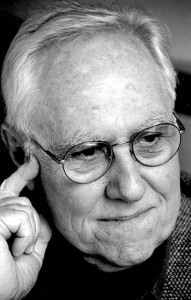A Quote by Herbert Marcuse
In its relation to the reality of daily life, the high culture of the past was many things opposition and adornment, outcry and resignation. But it was also the appearance of the realm of freedom: the refusal to behave.
Related Quotes
So there’s a kind of resurgence of the sense of freedom and spontaneity in nature. From nature being bound into a rigid, deterministic model, freedom, spontaneity and openness are emerging once again. It’s now recognized the future is open, not determined by the past. And this is true in many realms, the astronomical realm, the human realm, the meteorological realm in many ways.
Laziness acknowledges the relation of the present to the past but ignores its relation to the future; impatience acknowledge its relation to the future but ignores its relation to the past; neither the lazy nor the impatient man, that is, accepts the present instant in its full reality and so cannot love his neighbour completely.
And there is also the paradox that the dominating culture imbues the Indian past with great meaning and significance; it is valued more because it is seen as part of the past. And it is the romantic past, not the present, that holds meaning and spiritual significance for so many members of the dominating culture. It has seemed so strange to me that the larger culture, with its own absence of spirit and lack of attachment for the land, respects these very things about Indian traditions, without adopting those respected ways themselves.
Semantics is about the relation of words to thoughts, but it also about the relation of words to other human concerns. Semantics is about the relation of words to reality - the way that speakers commit themselves to a shared understanding of the truth, and the way their thoughts are anchored to things and situations in the world.
Enoch predicted that "the demons and the spirits of the angelic apostates would turn into idolatry all the elements, all the adornment of the universe, and all things contained in the heaven, the sea, and the earth, that they might be consecrated as God in opposition to God." All things, therefore, does human error worship, except the Founder of all himself. The images of those things are idols; the consecration of the images is idolatry.









































